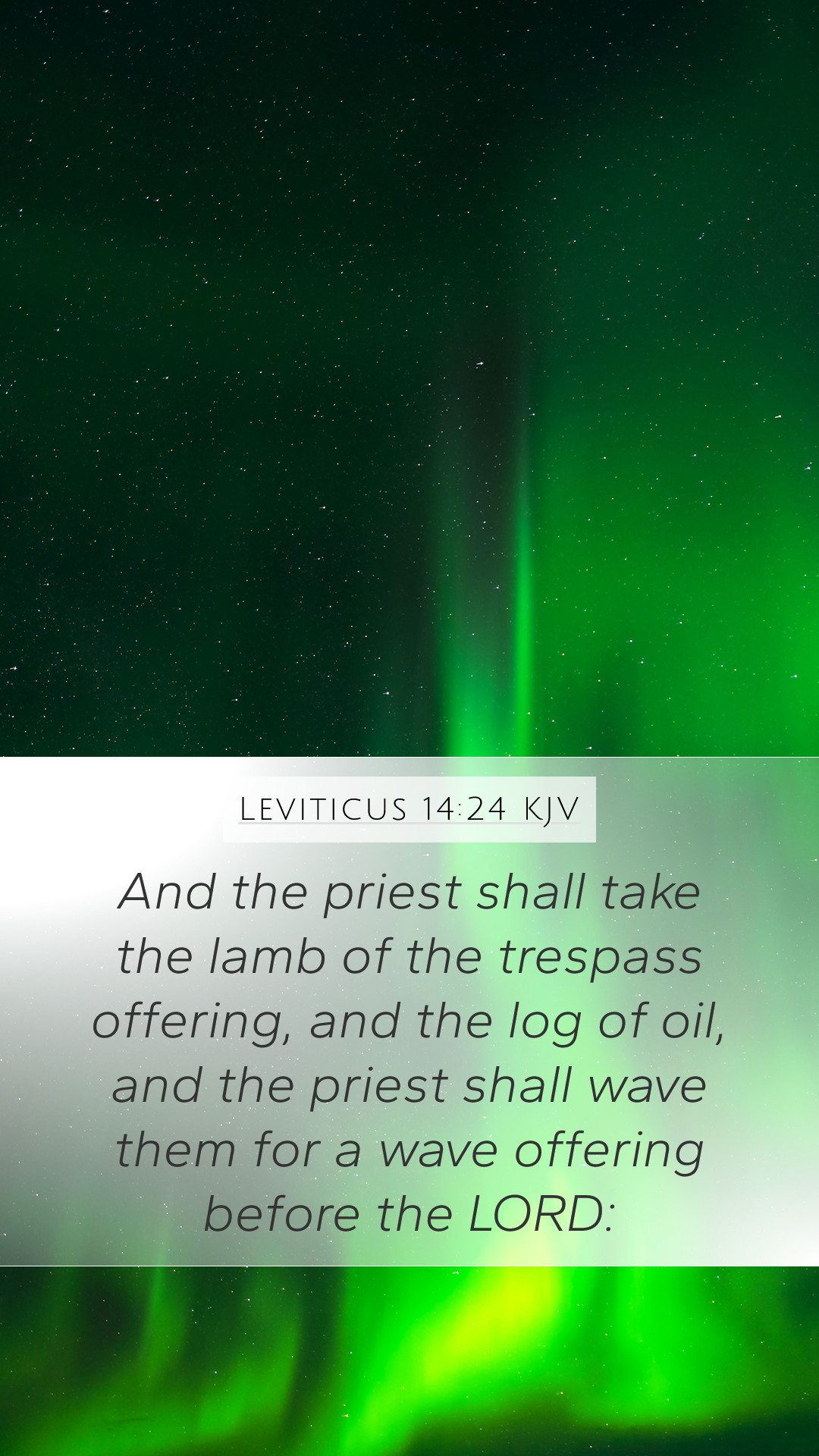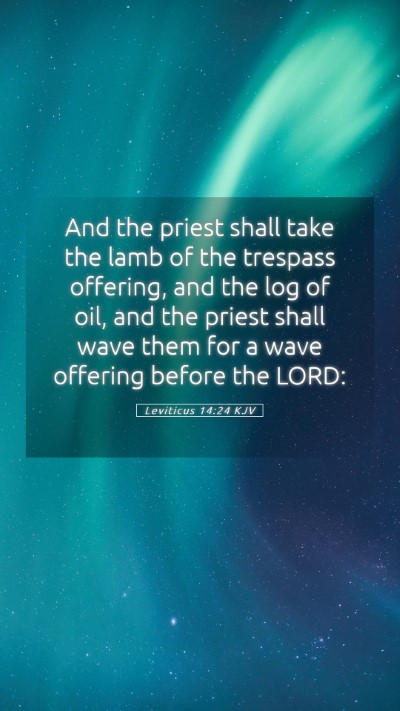Understanding Leviticus 14:24
The verse Leviticus 14:24 states:
“And the priest shall take the lamb of the trespass offering, and the log of oil, and the priest shall wave them for a wave offering before the Lord.”
Bible Verse Meanings
This verse comes from a passage that outlines the purification ritual for lepers who have been healed. The emphasis here is on the role of the priest, who acts on behalf of the people, mediating their restoration to the community and to God. The offering of a lamb signifies atonement and the oil represents sanctification.
Bible Verse Interpretations
In this context, the act of waving the lamb and oil serves as a physical representation of dedicating these offerings to God. The waving signifies the acceptance of the offerings by God, illustrating the importance of ritual in the process of restoration. Matthew Henry's commentary highlights that such rituals were necessary to illustrate the seriousness of sin and the need for atonement.
Scripture Analysis
Albert Barnes points out that the lamb symbolizes innocence and sacrifice, which is pivotal to understanding the sacrificial system established in the Law of Moses. The priest’s actions are not merely ceremonial; they hold deep significance as they facilitate the reintegration of individuals into the community following divine healing.
Biblical Exegesis
Adam Clarke adds that the inclusion of both lamb and oil denotes the combination of blood sacrifice and the anointing of the Holy Spirit, which contributes to full restoration. This combination indicates that physical healing is intertwined with spiritual cleansing, a theme prevalent throughout Scripture.
Bible Study Insights
- Community Restoration: Understanding the significance of community rituals in ancient Israel shows a profound intertwining of individual and communal health.
- Symbolism of Offerings: The lamb represents Christ, our ultimate sacrifice, while the oil foreshadows the work of the Holy Spirit in believers' lives.
- Importance of Atonement: Atonement must be understood as essential for relationships, both human and divine, further informing modern Bible study groups on the nature of sin and reconciliation.
Application of Bible Verses to Daily Life
The ritualistic elements outlined in Leviticus can encourage readers to reflect on their own need for spiritual cleansing and restoration. The necessity of engaging in community and seeking forgiveness can resonate deeply in today's society, highlighting the ongoing relevance of these ancient texts.
Cross References
- 1 Peter 1:19: “But with the precious blood of Christ, as of a lamb without blemish and without spot.”
- Exodus 29:22: “Also you shall take the fat of the ram and the fat tail, and the fat that covers the entrails, and the fatty lobe attached to the liver, and the two kidneys, and the fat on them, and offer them upon the altar.”
- Hebrews 9:22: “And almost all things are by the law purged with blood; and without shedding of blood is no remission.”
Conclusion
In summary, Leviticus 14:24 serves as a foundational scripture that informs us about the intricacies of sin, atonement, and community life as presented in the Bible. Its ritualistic aspects and their spiritual significance provide a rich avenue for deeper understanding and reflection in personal Bible study and group discussions.


